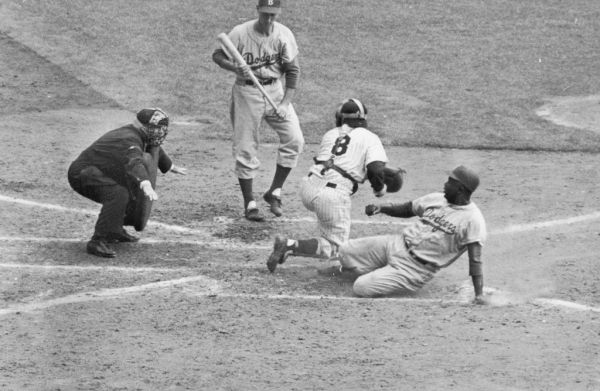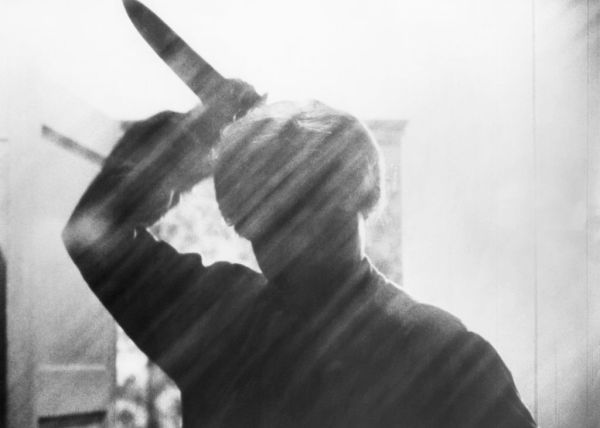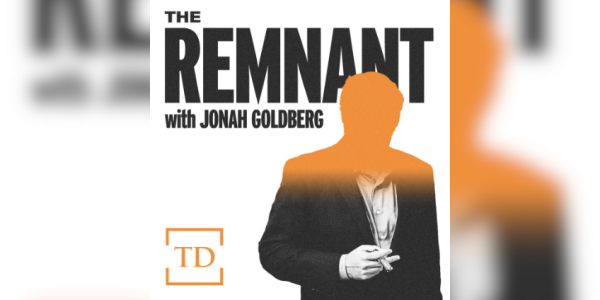Happy Saturday! How is your weekend going? It’s a bit of a weird one here in the Ohio bureau, as for the first time in months we don’t have a baseball tournament on the schedule. I’m not quite sure what to do with all the free time, though our neighbors would probably appreciate it if we did some yard work.
We love watching our kids play sports, but sometimes it can get overwhelming. Swim meets can last an entire weekend. With baseball tournaments, you don’t always find out when the Saturday games are until a couple days ahead of time. Then, the schedule for Sunday is determined by how well you play on Saturday. For some reason, though, whether we win two games, lose two games, or win one and tie one (yes, they have ties when there is a time limit), we always seem to draw the 8 a.m. slot on Sunday.
When I’m hauling the kids to 7 a.m. warmups for a swim meet or sitting at a baseball game at 8 p.m. on a Saturday wondering how much sleep our kid is going to get before he has to be back the next day, it reminds me to be grateful for my own parents, who did the same thing for my brother and me when we were kids. And, well, it is Father’s Day weekend, so let me tell you a little bit about my dad.
My parents owned a small grocery store when I was growing up. It had a bakery with homemade pies and cookies and cakes. The meat department was full-service: Nothing was wrapped in plastic three days before you bought it. My dad and the other meat cutters would cut steaks however thick or thin the customers wanted, and restaurants around town used our ground beef for their hamburgers.
It was never easy. My parents spent long hours on their feet. One of the indelible images of my childhood is walking into the back room of the store and seeing my dad at the butcher’s block, cleaver in hand, chopping up a hunk of meat to make ground chuck. On Tuesdays, we’d get our big shipment of dry goods from the wholesaler—cans of soup and vegetables, boxes of cereal and pasta and rice— and he’d give my brother and I the pricing “guns” to put stickers on everything, and then we’d stock the shelves.
It wasn’t just the physical labor, though. There was the Christmas morning that someone called our house while we were opening presents to complain about their turkey. There were difficult decisions to make when business was slow or when minimum wage would go up, or when employees weren’t working out.
But even with all of that, my dad found time to get to as many of our events as possible. I remember him standing by the meat counter, yes, but I also remember him standing along the fence at my track meets, near the finish line, yelling for me. He helped out with my brother’s baseball team.
My parents might not have realized it in the busyness of the moment, but they were leaving important impressions and setting an example. Watching them helped me develop my own work ethic, and the sacrifices they made for me made me want to do the same for my own kids.
And so we get up early on Saturdays to go sit in the cold, or the heat, or the stifling humidity of a natatorium. We cheer them on when they do well, and we listen to their rants on the way home when things don’t go well.
I get frustrated sometimes when our kids complain about going to practice or wonder why we don’t want to buy that $300 bat they’ll outgrow in a year—don’t they realize how much we’re doing for them?—but I don’t know how much gratitude I showed myself at that age. But I hope—and expect—that when they have their own kids, they’ll get it.
Happy Father’s Day, and thanks for reading.
Farideh Goudarzi lost her husband, sister, brother, cousins, and more than a few friends to the Iranian government’s campaign of political violence against its own people. She herself spent six years in prison, during which time she was interrogated and flogged by various Iranian officials. One of them was Ebrahim Raisi, who was announced the winner of Iran’s presidential election on Friday. In a powerful article, Charlotte talks to Goudarzi about her experiences and also to various experts about Raisi. How did he become the candidate of choice for the mullahs at a time when the Biden administration is trying to sell a return to the 2015 nuclear deal? One problem Charlotte notes is the “Islamic Republic’s plummeting legitimacy in the eyes of its own populace. With a proven track record quelling dissent and putting down uprisings, Raisi is the clear choice to sustain the 82-year-old Khamenei’s rule during his life and ensure a stable transition of power to the next supreme leader after his death.”
The New York Democratic mayoral primary shows that while “defund the police” might be a popular sentiment on the left after last summer’s racial justice protests, it’s at odds with the concerns of New Yorkers in the wake of increasing crime and violence. The frontrunner is Eric Adams, a former cop and one-time Republican who has vowed not to strip NYPD of any funding or disarm police officers. Oliver Wiseman reports from New York: “The mayoral race won’t just determine who gets to run New York. It will also take the political temperature of urban America as it emerges from a bruising year of pandemic, lockdowns, protests, riots, and rising crime,” he writes. “Do the residents of America’s biggest city see 2020 as a crisis moment that provides the opportunity for radical change?”
The end of June is a sort of high holiday for Supreme Court superfans. The justices typically release their biggest decisions now, and this week did not disappoint. In French Press, David does a deep dive on the major announcements from this week, in particular Fulton v. Philadelphia. The city of Philadelphia had tried to punish Catholic Social Services for its refusal to recommend same-sex couples as foster parents. In a unanimous decision, SCOTUS ruled that Philadelphia had discriminated against CSS. David looks at how the ruling was narrow, not rising to the level of overturning Employment Division v. Smith, a case that effectively limited religious freedom in the workplace, but that there appeared to be five judges who would be willing to do so in a different case. There’s much, much more, including a lecture on getting too worked up about the 6-3 ideological breakdown of the court.
We got a new federal holiday this week, and Jonah is here to celebrate it. On Wednesday, President Biden signed a bill making Juneteenth a national holiday and—in a rare bit of efficiency in government—it was observed on Friday. (On June 19, 1865, Union Gen. Gordon Granger arrived in Texas to enforce the emancipation of slaves.) Jonah marked the occasion by explaining why Juneteenth is a great American holiday. The idea that what makes America great is that we’re not perfect but we’re always trying to be better and learn from past mistakes is a theme he hits on frequently, and this is a perfect example. “There was nothing hypocritical about slavery in Asia, the Middle East, or Europe. To the extent those civilizations had charters, creeds, or some other form of fleshed-out ideals, slavery was consistent with them. In America, slavery was a grotesque hypocrisy whose horror was eclipsed only by the actual horror of the institution as practiced.”
And here’s some more stuff you might have missed:
-
Is it us, or is the omnipresence of “Infrastructure Week” one holdover from the Trump administration we could do without? in Uphill, Haley reports on bipartisan talks that could yield a deal that, while smaller than Joe Biden’s proposal, might appeal to more Republicans by focusing mostly on traditional projects like roads and bridges.
-
Continuing in our series of “way too early looks at key Senate races,” Price St. Clair previews North Carolina, the “bluest red state in the country.” It’s a pickup opportunity for Democrats, but the three GOP frontrunners are experienced and well-known: a former governor, a current member of the U.S. House, and a former congressman.
-
There’s a new “theory” going around that the January 6 Capitol riot was led by … FBI agents. If you think it sounds far-fetched, you’re right. Andrew explains how the claim falls apart quickly.
-
If you see the figure $6 trillion and think “Good lord, that is an insane amount of money,” well, you’re probably not a congressional Democrat. In Uphill, Haley looks at how Democrats are preparing a massive spending package to take care of Biden’s big priorities and planning to use reconciliation to push it through without any GOP support.
-
And on the pods: The gang discusses the controversy over critical race theory in schools on The Dispatch Podcast. On The Remnant, Jonah talks to Tevi Troy about Israel’s chaotic parliamentary system, Netanyahu’s legacy, and … the dismal state of the Hollywood blockbuster. And if you didn’t get your fill of Supreme Court analysis from David’s French Press, he and Sarah have more on Advisory Opinions.






Please note that we at The Dispatch hold ourselves, our work, and our commenters to a higher standard than other places on the internet. We welcome comments that foster genuine debate or discussion—including comments critical of us or our work—but responses that include ad hominem attacks on fellow Dispatch members or are intended to stoke fear and anger may be moderated.
You are currently using a limited time guest pass and do not have access to commenting. Consider subscribing to join the conversation.
With your membership, you only have the ability to comment on The Morning Dispatch articles. Consider upgrading to join the conversation everywhere.